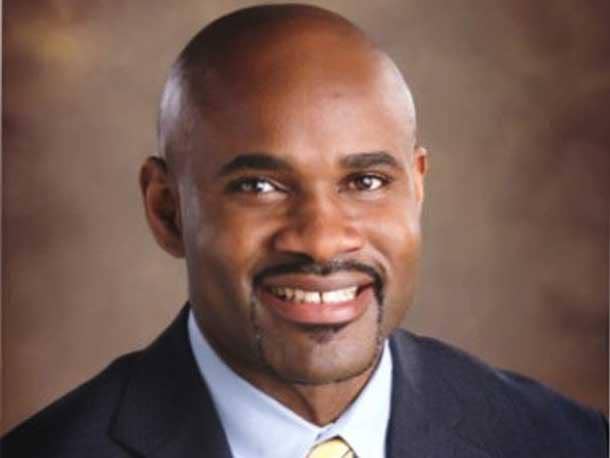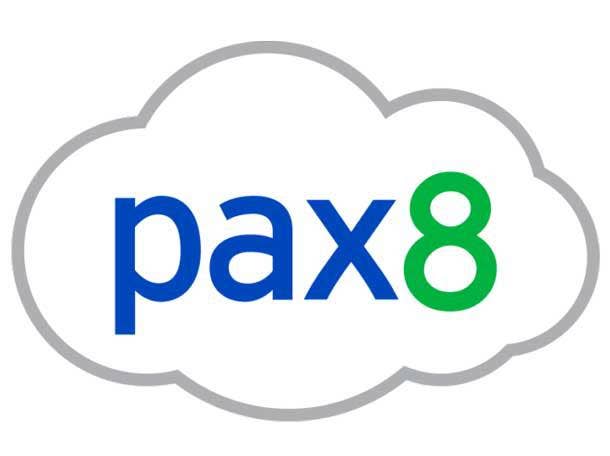Microsoft Partner NB Technology Projects 23 Percent Growth Thanks To Cloud, Cybersecurity Push
‘We’re doing more training in the Azure space to learn to be as proficient as we can with that,’ NB Technology CEO Moses Nueman Jr. tells CRN in an interview.

NB Technology, a Belmont, N.C.-based Microsoft partner, projects 23 percent growth in gross sales year over year in 2023 as it moves toward full cloud services offerings and improving its customers’ cybersecurity strength.
The company of about five employees has carved out a niche helping small businesses migrate on-premises staffers and remote workers to Microsoft’s Azure Virtual Desktop plus providing backup and disaster recovery (DR) to businesses, CEO Moses Nueman Jr. told CRN in an interview.
During the “fourth quarter 2022, we’re doing more training in the Azure space to learn to be as proficient as we can with that. And bringing more engineers onboard to help,” said Nueman, who declined to disclose revenue figures. “That’s going to help us market to outside of the state more so we can pretty much get customers anywhere in the United States.”
[RELATED: Microsoft Unites Windows 365, Azure Virtual Desktop Under Windows Superstar Scott Manchester]
Is Microsoft cybersecurity growing?
NB does have some customers outside of the U.S., but most of Nueman’s clients are in the Charlotte metro area.
Like other partners, growing the business this year has included some challenges. NB has been one of many Microsoft partners to have to talk to customers about new contract pricing due to the Redmond, Wash.-based vendor’s new commerce experience (NCE) rollout.
“We had to talk to our customers about the options to move to a yearly agreement or stay monthly and pay the premium,” Nueman said. “It’s been a challenge. We’re still going through it with some customers but we manage it. … I’ll say a good 60 percent of our customers just went ahead with (the monthly premium).”
Nueman’s investments align with what Microsoft has been saying publicly about the need for its Azure and cloud services and the work partners do to help smaller customers – although the vendor has taken more of a conservative stance on growth given how customers are reacting to high inflation in the U.S. and the potential for a recession next year.
During the company’s October quarterly earnings call, Microsoft Chief Financial Officer Amy Hood said that a lot of work during the quarter came by partners and Microsoft sales and customer success teams optimizing customer Azure and cloud workloads as Azure growth continues to decelerate.
On workload optimization, “we saw that across all segments,” Hood said. “If there was one segment where I may have seen it a bit more, I would say, in the small or midsize segment of the market. That tends to be more through partner[s]. We rely on partners to help customers do those same optimizations and prepare workloads.”
She continued: “If you step back and say, ‘This is how you drive ultimate share gains and build customer loyalty and help customers grow’ – I think that needs to be the focus of our teams inside the company and also the partners that we rely on to help customers do that as well.”
Microsoft has added new security options to a premium version of its Teams collaboration application, CEO Satya Nadella said on the October call. More than 860,000 organizations across every industry now use Microsoft security solutions, up 33 percent year over year.
“They can save up to 60 percent when they consolidate our security stack,” Nadella said “And the number of customers with more than four workloads have increased 50 percent year over year.”
Part of the challenge to growing in the cybersecurity space for Nueman and other partners has been knowing when to walk away from a client putting too much liability on a partner business by not going with a stronger posture.
Nueman shared a story of a health care client who – even after its electronic medical records (EMR) vendor was hacked – declined NB’s offer to upgrade its network and security.
“So we said, ‘Sorry – we don’t want that liability,’” Nueman said. “So we had to let them go.”
Here’s what else Nueman had to say.

What’s in demand for NB Technology customers?
Cybersecurity. Everyone is looking for ways to stay secure with a lot of threats happening, a lot of bad actors. You have to have it. In technology, it’s close to having air.
Outside of having an internet connection, having good cybersecurity is like having air. … And then remote support. Remote access. A lot of work from home. Work from anywhere. COVID introduced that to a whole nother level. So, a lot of customers are requesting how their staff can work remotely. … Microsoft 365 is extremely essential for us. That’s our top No. 1.
That is becoming a big thing as Microsoft is now taking a big share of all that cloud space. And the stability of it. Customers are starting to see the advantage of using cloud technology for their business.
How was the adoption of Microsoft’s new commerce experience for NB?
I don’t think any MSP will say it was a great experience. But we survived it. Microsoft is that big elephant you just can’t move. You can try, but you just can’t move them. So pretty much what they say goes. Although they are trying their best.
We had to talk to our customers about the options to move to a yearly agreement or stay monthly and pay the premium.
It’s been a challenge. We’re still going through it with some customers but we manage it. … I’ll say a good 60 percent of our customers just went ahead with (the monthly premium).
Because our contracts are one-year, three-year agreements. We have some that are just on the Microsoft side, where they are still wanting to do the month-to-month outside of our management, and that’s OK with us too.
But for the most part, 60 percent of them were OK with no problem at all.

Do you work with a distributor?
We work with Pax8. We love Pax8. They’ve just been great. … The only thing is we wish that they had all the vendors in their portfolio. … They’re trying to add more and more. … They’ve added SentinelOne, which, we use SentinelOne now, so that’s good.
(Cybersecurity vendor) Blackpoint Cyber is one that we want to see if they can add them. That would be great for us. … They (Pax8) were very helpful in helping us through the whole (Microsoft NCE) process. We get a lot of information from them. … (For the Microsoft partner capability scores, I’m still) learning more about what that’s all about. … Pax8, they will get all that information, assimilate as much as possible, and break it down to us so that we will understand it in bite(-sized) pieces.
Is NB looking to add more vendors?
We spent six months building our security stack. And because of all these cyber threats that’s been happening, a lot of different cybersecurity ‘so-so companies,’ we’ll call them, have popped up.
And everyone’s offering the magic wand or whatever people call it. They can do this. They can do that. So we try to vet them out. So it took us about that long to vet out the companies that we decided to choose and implement in our company.
So we always like to see what is new. (Recently) we were on a call with (MSP-focused privileged access management vendor) Quickpass. … Just trying to learn more to see how the product works.
And it seems to be pretty good from what we demoed. So now we have to figure out how they would work with our customer base. And see if that’s something they want to subscribe to.
It would be great for us internally, but also for our customer base, we just have to have that conversation.

Does NB have any industry or geographical specialties?
We’re mostly in North Carolina, though we do have some clients that are outside of the States. When it comes to that, we primarily provide them cloud services such as virtual desktops and backup and disaster recovery services. … But on the local (side), we are primarily within the Charlotte metro (area) because we physically have to go to some clients’ sites.
Although that’s only about 10 percent of our time now. … We have five (full-time employees). And some are remote based.
Is NB growing?
We’ve been kicking the tires a bit about this and seeing what works and trying to understand where we should move into to still be relevant in the next few years.
I really started the business back in 1998 part time and went on full time in 2007. We’ve had to adapt as much as we can with the technologies now to survive. There were a lot of IT companies that started out and just went out of business.
So we’ve worked hard to learn different technology, new emerging technology to still be relevant. And thank God we’re still here. And in doing so, we’re now looking at the next five years, where do we see the growth is going to be?
There’s a lot of cybersecurity offerings and a lot of IT companies are claiming they do cybersecurity. A lot of companies say, ‘Oh, we can do this and make this work.’ And some are better than others.
But now we are looking at becoming more specialized with cloud and as it relates to AVD (Azure Virtual Desktop) itself.
(So, during the) fourth quarter 2022, we’re doing more training in the Azure space to learn to be as proficient as we can with that. And bringing more engineers onboard to help.
That’s going to help us market out to outside of the state more so we can pretty much get customers anywhere in the United States.

Is hiring now tough?
It is. We’ve supplemented a good bit by using contractors. So that has worked out well, honestly.
In fact, we have a part-time social media person who is in South Africa. … We have engineers vetted out for compliance and security to make sure that they can do the work and contract some of them with a retainer. … That’s been extremely helpful.
And now with the remote workspace, you can work from anywhere. And we’re looking more and more into that actually because we find that to be much better rather than having someone in the office. It works out well.
Anything that vendors could be doing that’d be helpful to you and fellow MSPs?
One of the things that helps us as an MSP is agreements. That’s extremely important. We typically do not want to be locked into anything more than month-to-month agreements.
So when you have agreements like three years, we tend to shy away from those. One year, we can take it. But month-to-month is typical.
And the reason why is that, if we have a customer on a long term agreement – whatever the service is – and we have an agreement with a vendor and it’s for one year, and that customer has to leave us in the middle of the year, if you’re not able to transfer that product or service to another customer – guess what? We’re stuck.
And that’s the whole issue with Microsoft right now. It’s that, They will not let us transfer these licenses to another customer. So, what do we do? Nothing because we are pretty much stuck.
And that’s the whole issue with Microsoft right now. It’s that they will not let us transfer these licenses to another customer. So, what do we do? Nothing because we are pretty much stuck.
(A separate vendor), they want you to do a three-year contract to use their product, which … their product is terrible. It’s antiquated. … So locking you into a three-year agreement and you don’t need it and you don’t like it. … We just had to stop using them.

How’d you get into the IT business?
I’m a very curious type of person. I love emerging technology. I love learning about what’s new and coming out. Sometimes I could be scatter-brained if I just get my eyes on something. … But I remember buying my first computer, which cost me literally $5,000.
That was a Hewlett Packard computer. I paid for it myself. And, man, I worked on that computer 23, 24 hours a day. Just playing with it, learning something and wondering what made this thing work and how?
I finally went back to school, back to college and started learning. … I was just intrigued and amazed at what you could do with computers and technology itself. And I learned how to fix PCs.
But my degree was really in programming. I enjoyed it. My first job was on the technical side, which was – believe it or not – the lowest job you could get, which was a backup operator. And that was after 300 resumes that I put out, finally landed that job.
I learned the job in two days. You just had to watch the computer screen. When it said the backup was full, pull the tape out, put a new tape in. Take reports and put the reports out there for the executives. That was it. … Nevertheless, I learned the technology. And I was so fascinated, so intrigued. … I needed to learn more. … So I started out just helping friends. … During that time, there weren’t really a lot of IT people, people who really knew about personal computers on how to fix it. I just happened to be one of the lucky ones.
I’d go into people’s homes fixing computers and they were like, ‘Hey, if you can do this for us, we own a business, why don’t you come to our office and fix them.’ … From there we went from residential to business services. And then changed and said, ‘Hey, we’re just going to do commercial services. … I love it.
And I’ll tell you one of the things that helps me a lot. … Just the joy and happiness of them (customers) that you fixed something that’d been an issue for them. … So, I still have the same passion even today learning new technologies and seeing how we can implement those technologies to help improve our client’s business processes.
But it’s all about providing sound technology and sound support for us. The support has got to be bar none. Because I always say every service and product that you purchase is made far better with the support that’s behind it.

Are customers more open to spending on cybersecurity?
Yes, it’s getting easier because the push is coming down from insurance (companies). They’re mandating that you have that. And if you don’t have those things in place, they’re basically telling you, ‘Hey, when something happens, we are not going to pay.’
And depending on what you check off and claim you have implemented, when the auditors come in and review it and say you’re not doing it, you’re not getting paid. Just point blank.
So yeah, it’s making things easier for us to implement as they come in, to get those insurance policies. … But there are still some customers that just don’t want any cybersecurity. It’s serious.
We had to let one customer go. … They are in health care, and they did not want to move to an advanced cybersecurity plan to protect the organization.
And to make matters worse, the EMR (electronic medical record) company that they were using … were actually breached … with ransomware. And they were locked up. And they could not do anything for almost three months.
When patients would come into the office, they had no idea who the patient was. They had no idea what time the patient was scheduled to come in, because remember, all their records are in the EMR system.
And an outside company was actually handling that part of the EMR system, which didn’t have anything to do with us.
So they didn’t have any records about them (patients). So they couldn’t tell what type of medication that this patient had. … For about three months or so. So that gave us an opportunity to go back to them and say, ‘Hey, you guys have seen what’s happened with your EMR company. And this has happened to a lot of businesses out there. We need to upgrade your network, your system and implement better security for you guys.’
And they declined it. So we said, ‘Sorry – we don’t want that liability.’ So we had to let them go.